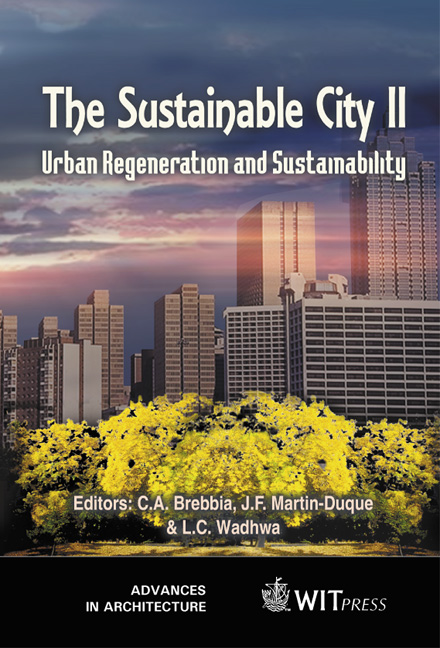Food Security In Cities – A New Challenge To Development
Price
Free (open access)
Transaction
Volume
54
Pages
Published
2002
Size
667 kb
Paper DOI
10.2495/URS020941
Copyright
WIT Press
Author(s)
D L Iaquinta & A W Drescher
Abstract
Food security in cities -a new challenge to development D. L. Iaquinta1, A. W. Drescher2 1 Nebrska WesIeyan University, Lincoln, USA 2 Albert-Ludwigs-Universitat, Freiburg, Germany Abstract Urbanisation will become one of the major problems of mankind in the near future. Mega cities and numerous large- and middle-scale urban centres will develop rapidly, especially in Asia, Africa and South America. There is increasing acknowledgement that rural, periurban and urban environments operate as a system (i.e., a continuum) rather than independently. Therefore, we need an emphasis on sectoral linkages that bridge the artificial rural-urban dichotomy. In terms of migration and urbanisation, periurban environments play a mediating role between rural and urban. This implies manifold rural- periurban-urban linkages. The locus of poverty is slowly shifting from the rural to the urbanised sector. The phenomenon of poverty, nevertheless has to be understood as a cross-sectoral issue, interlinked across geographical areas and institutional frameworks. Poor urban dwellers in developing countries and in countries of transition (i.e. those experiencing difficult economic situations, with high unemployment rates, little formal sector development, etc.) respond to food shortages and lack of purchasing power through the production of their own food in cities and various other coping strategies. Food production in cities includes crop, vegetable and fruit production, small-scale animal production, aquaculture, bee keeping and other forms. Often conflicts arise between these activities and the urbanisation process. History has shown that the urban poor belong to the most vulnerable group in times of crisis. Sudden food shortages lead to large-scale out-migration of urban dwellers to rural areas. Limited access to food, land and water are basic reasons for this.
Keywords





